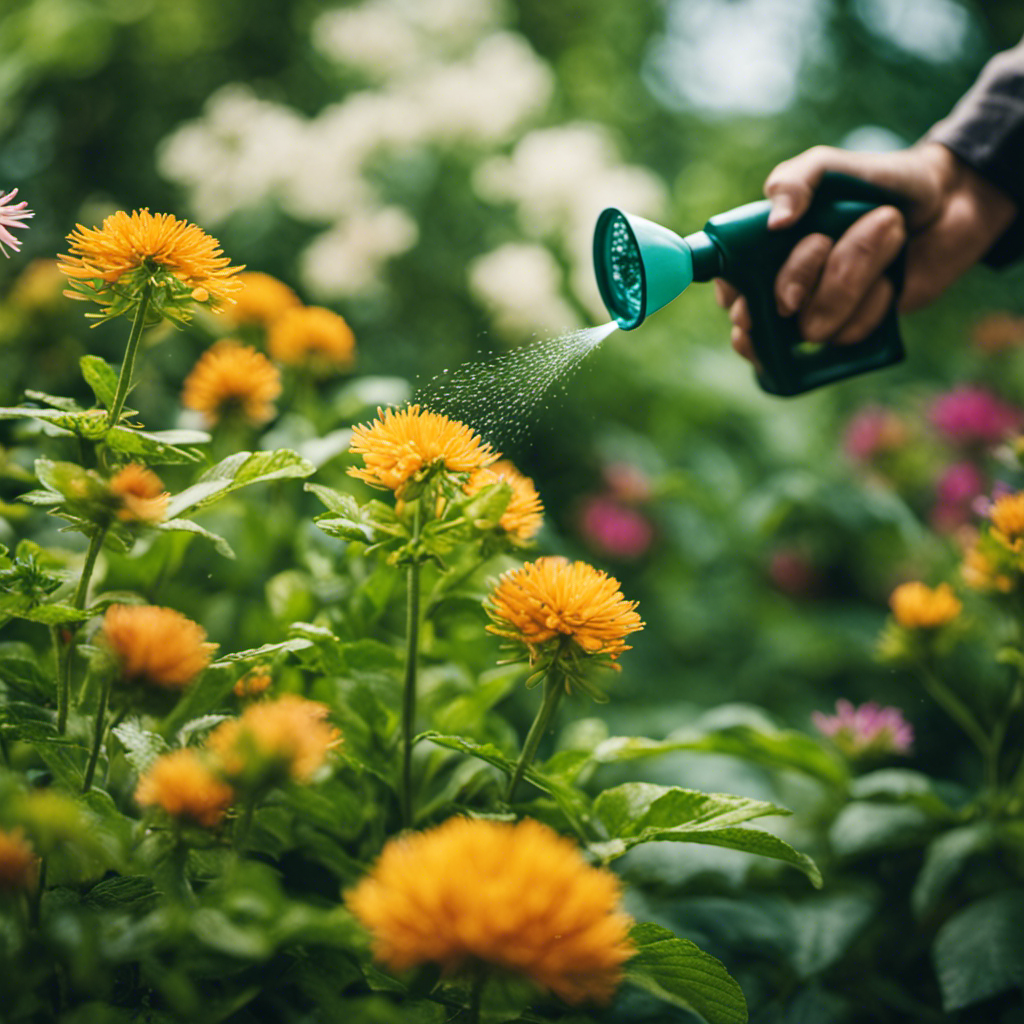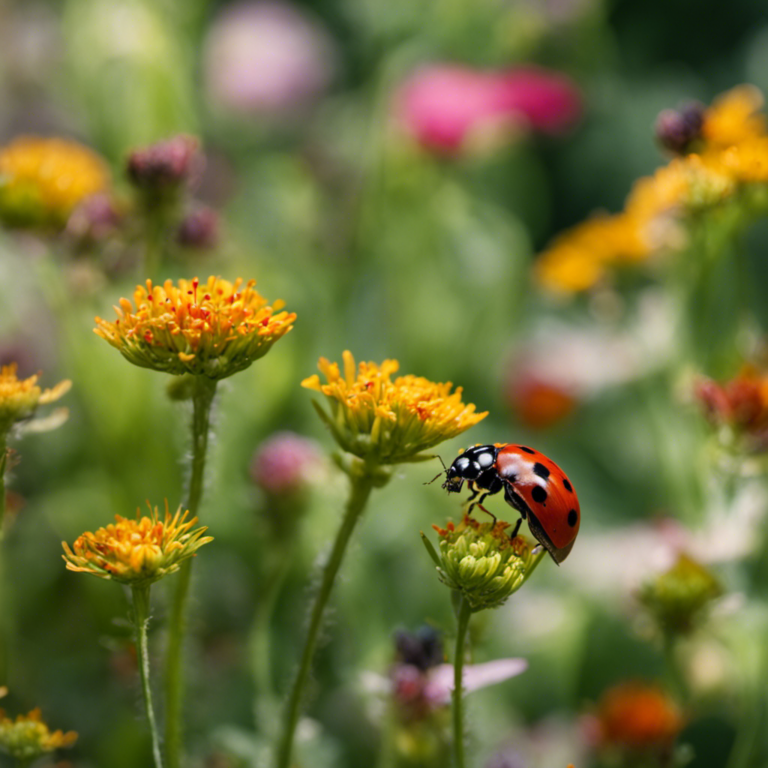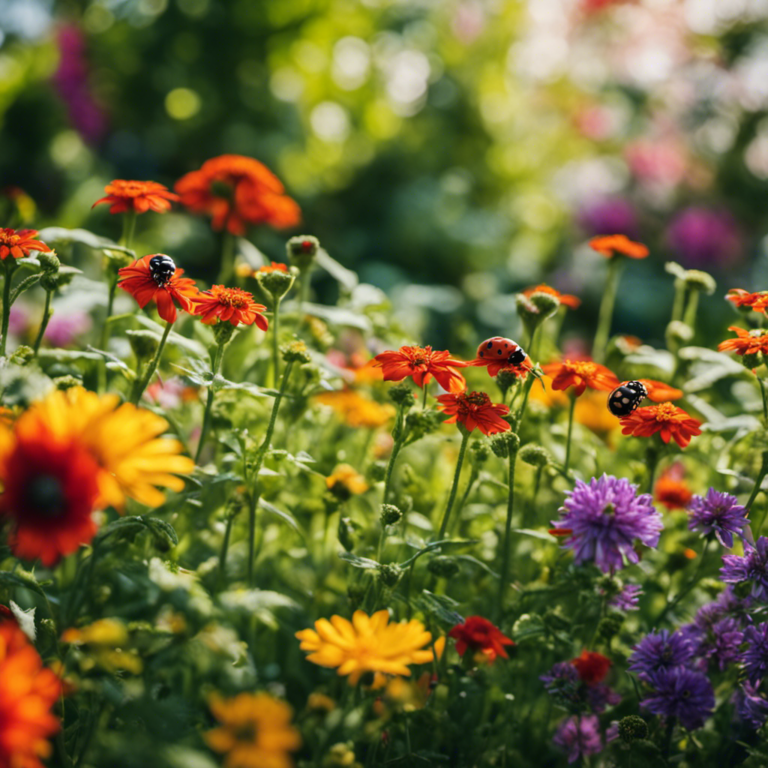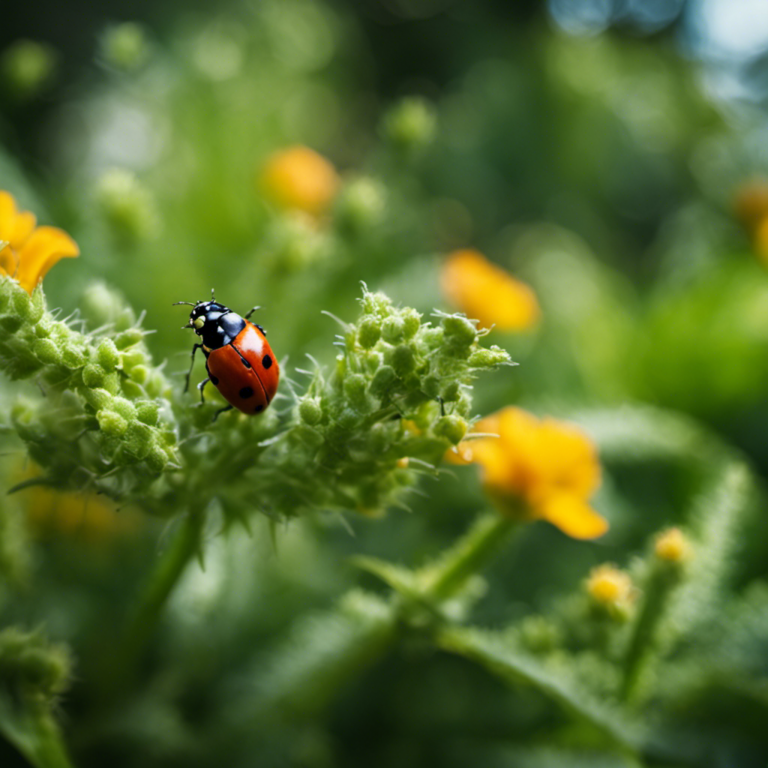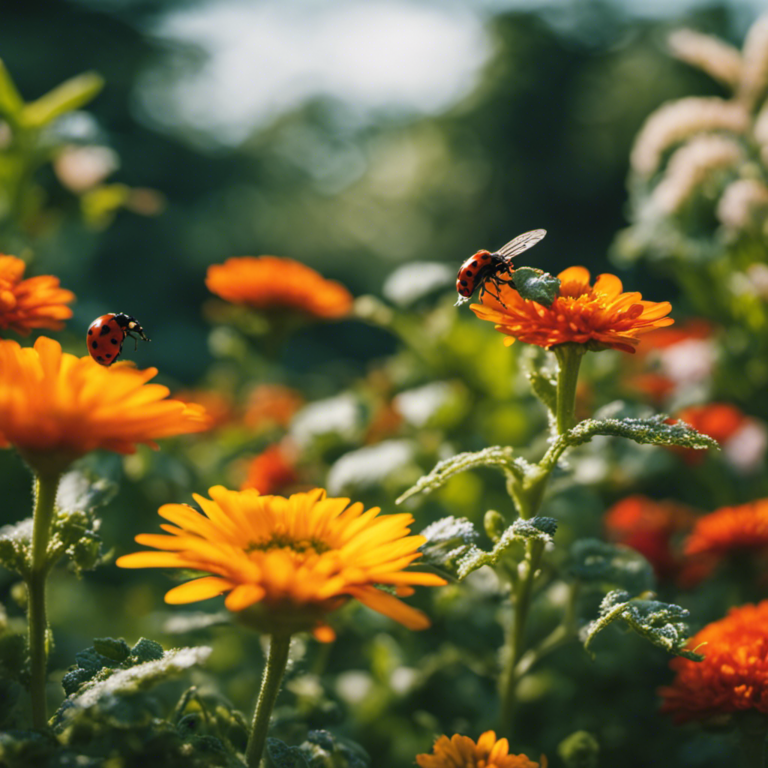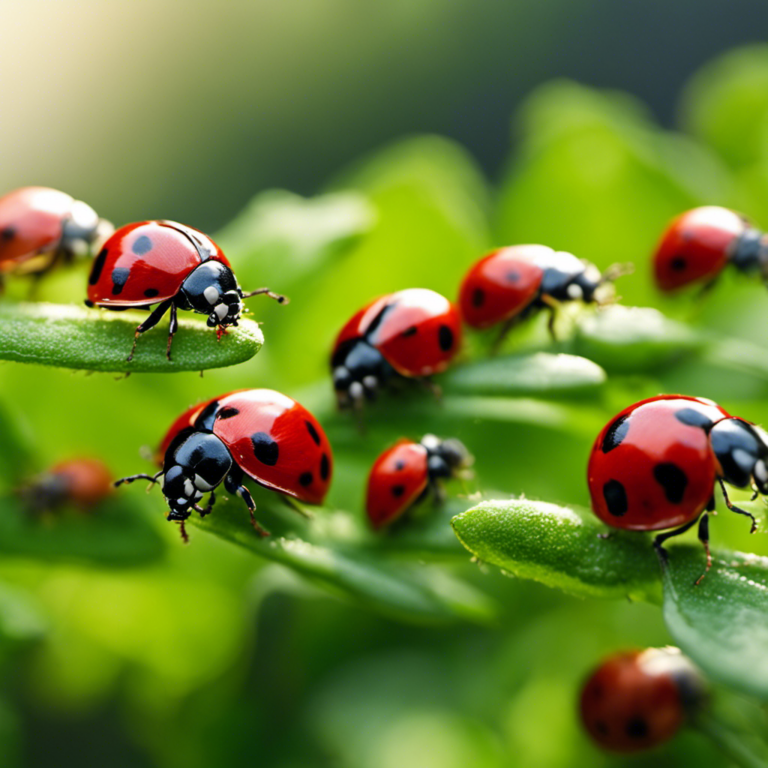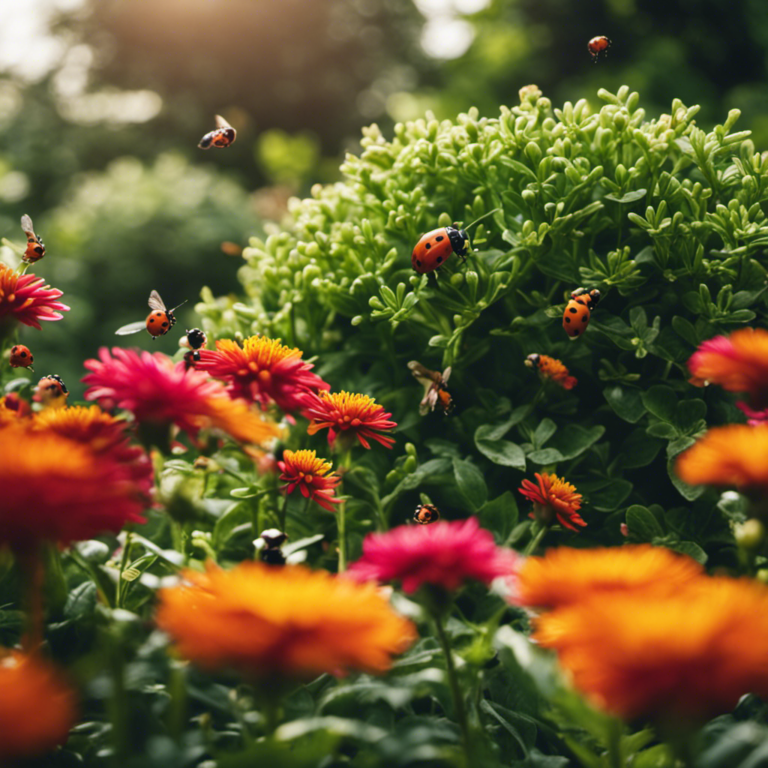Did you know that a large majority of gardeners believe in the effectiveness of DIY pesticides?
However, it’s important to separate fact from fiction. Not all homemade pest control methods actually work.
In this article, we will debunk common myths surrounding DIY pesticides and provide evidence-based alternatives that have been proven to be effective.
We will explore various techniques, from using essential oils to creating homemade sprays, that can help you keep pests away from your garden.
Say goodbye to ineffective solutions and hello to a thriving, pest-free garden with these proven methods.
Key Takeaways
Debunking Myths: DIY Pesticides for Your Garden
The world of do-it-yourself pesticides for your garden is filled with misconceptions that need to be clarified. Many people believe that essential oils, insecticidal soaps, garlic sprays, neem oil, and vinegar are effective natural remedies for pest control. However, there is uncertainty surrounding their ability to effectively manage pests.
To ensure the health and productivity of your garden without harming the environment or wasting resources, it is important to rely on evidence-based solutions recommended by experts. Don’t be swayed by the appeal of DIY pesticides; instead, seek professional advice for a truly successful garden.
Essential Oils for Natural Pest Control
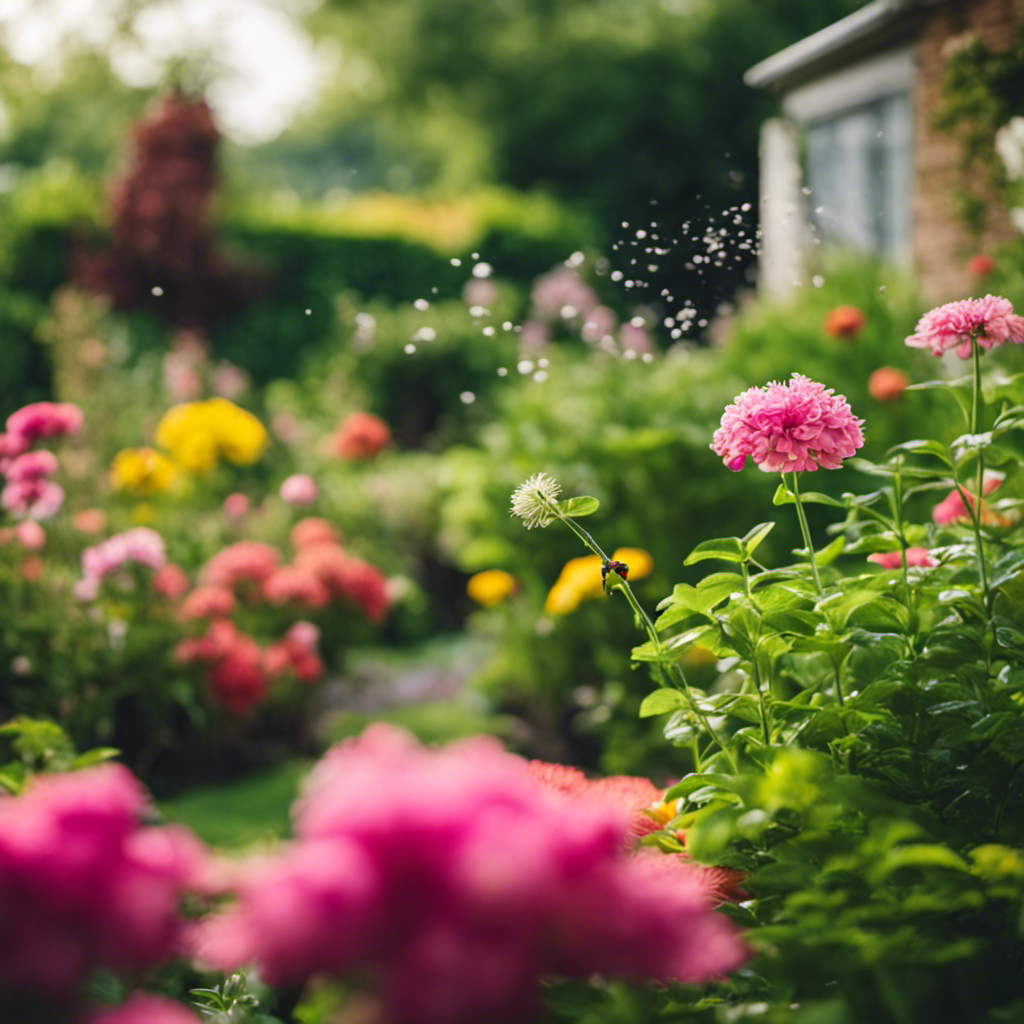
Using essential oils can be a natural and effective way to control pests in your garden. For years, people have turned to botanical extracts for organic pest management, and essential oil blends are no exception. They’ve proven to be successful in deterring various garden pests. Take citronella oil, for instance, which is known for repelling mosquitoes and other flying insects. Peppermint oil, on the other hand, can help keep ants and spiders away. These essential oils contain compounds that disrupt the sensory systems of pests, making your garden an unattractive environment for them.
To use essential oils, simply dilute a few drops in water and spray the mixture onto the affected plants or around the perimeter of your garden. It’s important to remember to reapply after rainfall or as needed.
Not only does using essential oils for pest control protect your plants, but it also ensures a safer and more eco-friendly approach to gardening. So why not give it a try and see the difference it can make in your garden?
DIY Insecticidal Soap Recipe
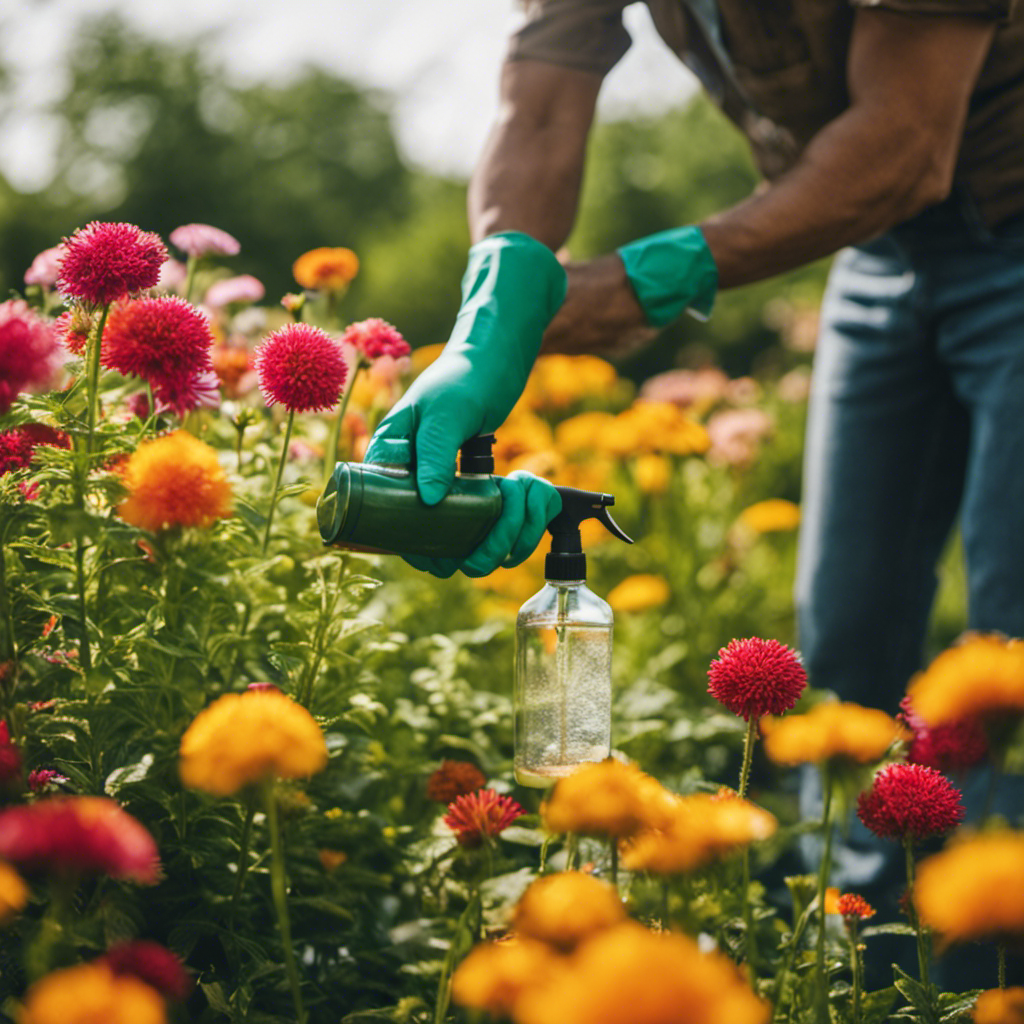
Make your own homemade insecticidal soap to effectively and affordably control pests in your garden. DIY insecticidal soap has several advantages compared to commercial options. Here are some reasons why making your own is worth considering:
- Environmentally friendly: Homemade insecticidal soap is derived from natural ingredients, making it safe for the environment and beneficial insects.
- Cost-effective: Commercial insecticidal soaps can be pricey, but creating your own is a budget-friendly alternative.
- Versatile: Homemade insecticidal soap is versatile and can be used to combat a wide range of pests, including aphids, mites, and whiteflies.
While making insecticidal soap at home is relatively simple, there are common mistakes to avoid:
- Using excessive soap: Using too much soap can harm plants, so it’s crucial to follow the recipe and dilution instructions carefully.
- Applying in direct sunlight: Applying insecticidal soap in direct sunlight can cause the solution to dry too quickly, reducing its effectiveness.
Homemade Garlic Spray for Garden Pests
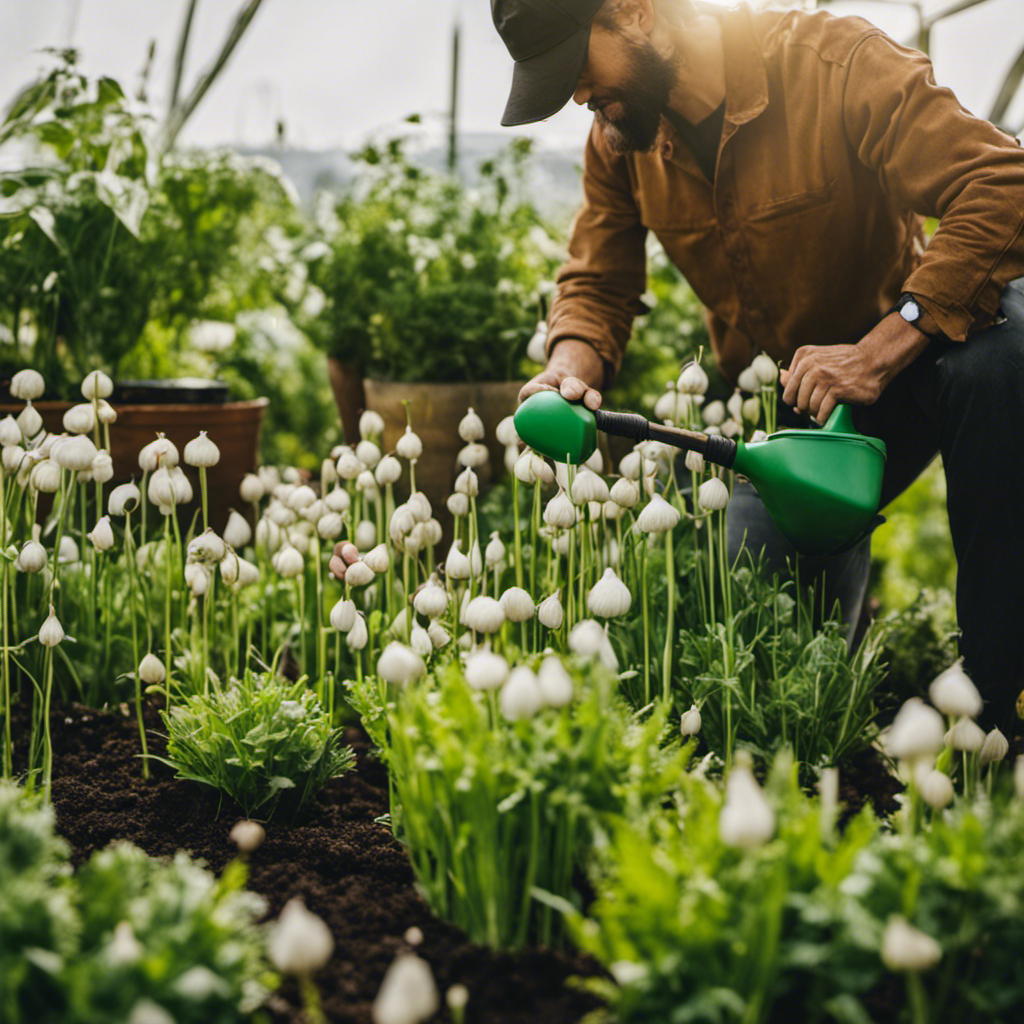
Combatting garden pests can be effectively done by incorporating a small amount of garlic into your homemade spray. Garlic has been used for centuries as a natural pesticide due to its strong odor and compounds that repel insects.
However, it’s important to note that the effectiveness of garlic spray may vary depending on the type of garden pests you’re dealing with. While studies have shown that it can be effective against aphids, spider mites, and certain beetles, it may not be as effective against larger pests like slugs or caterpillars.
Additionally, homemade garlic spray may not have the same potency as commercial pesticides, and its effects may only be temporary. It’s crucial to use garlic spray sparingly and target only the affected areas to avoid harming beneficial insects.
Neem Oil and Its Effectiveness in Pest Control
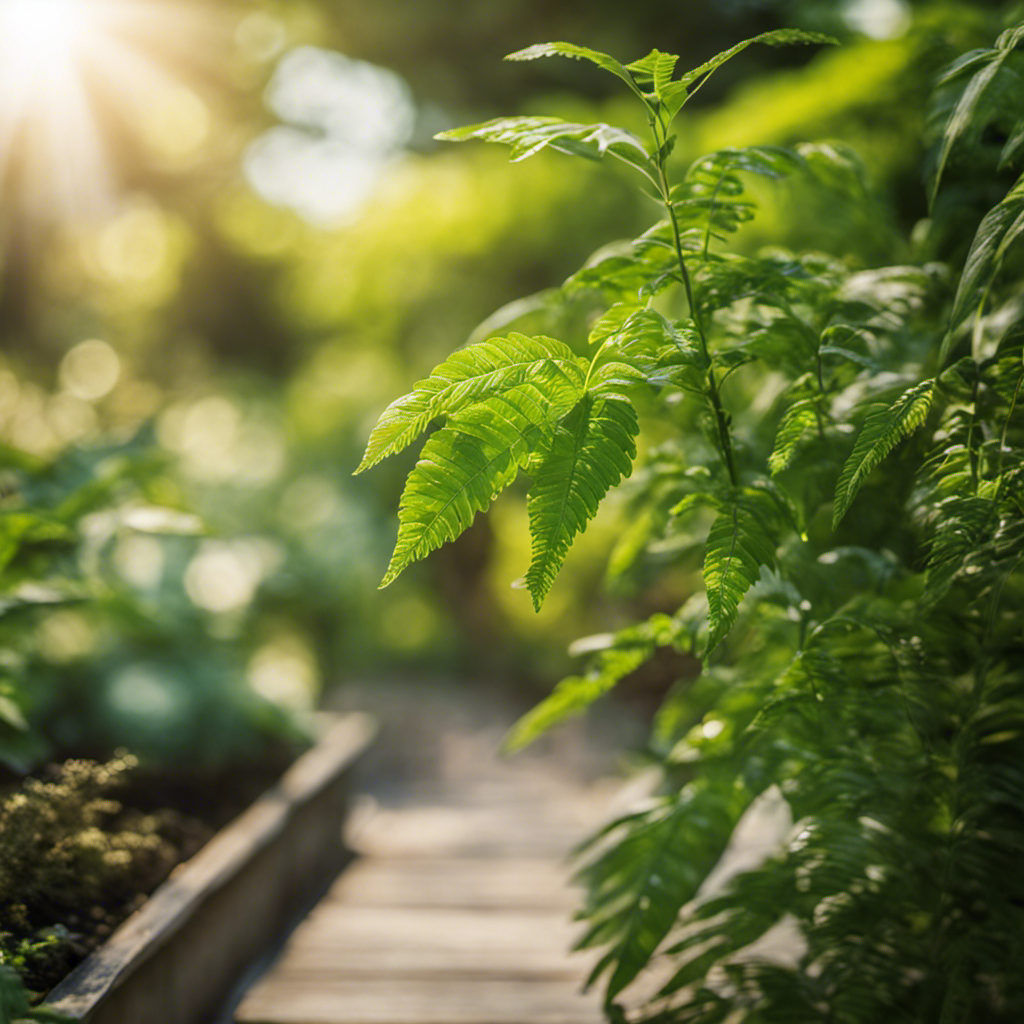
When it comes to dealing with garden pests, incorporating neem oil into your homemade pesticide can be a highly effective solution. Neem oil, which is derived from the neem tree, is well-known for its natural insecticidal properties.
Here are some reasons why neem oil is an excellent option for pest control:
-
Neem oil alternatives: If you prefer not to use neem oil, there are other organic options available, such as insecticidal soaps or botanical oils. These alternatives can be mixed with natural ingredients like garlic, onion, or cayenne pepper to enhance their effectiveness against pests.
-
Neem oil application techniques: To use neem oil, dilute it with water according to the instructions provided on the product label. Then, use a sprayer to evenly distribute the neem oil solution on the affected plants. It’s best to apply the solution in the evening or early morning to avoid direct sunlight, as this can cause the oil to evaporate quickly.
Using Vinegar as a Natural Pesticide
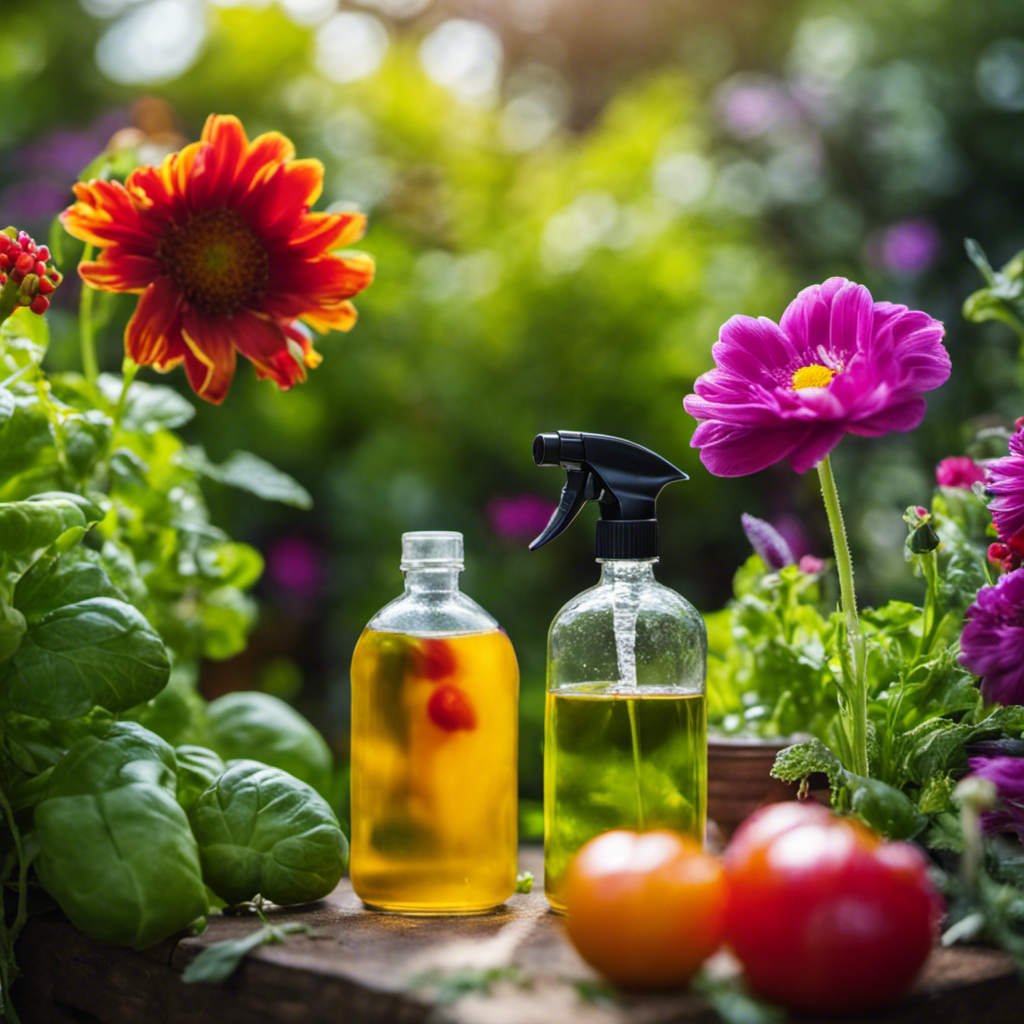
Using Vinegar as a Natural Pesticide
If you’re searching for a natural pesticide to use in your garden, vinegar can be a highly effective option. Vinegar, specifically white vinegar, contains acetic acid, which has been proven to possess herbicidal and fungicidal properties. When applied as a weed killer, vinegar can be directly sprayed onto the leaves and stems of unwanted plants, causing them to wither and perish. However, it’s important to note that vinegar is non-selective, meaning it can harm any plant it comes into contact with, so caution must be exercised. As a natural fungicide, vinegar can also be used to control fungal diseases like powdery mildew. A mixture of vinegar and water can be sprayed onto affected plants to help prevent and treat fungal infections.
| Pros | Cons |
|---|---|
| Environmentally safe | Non-selective, can harm desirable plants |
| Inexpensive and widely available | May require multiple applications for effectiveness |
| Easy to use | Strong odor that may linger |
Conclusion
The world of DIY pesticides for your garden is filled with myths that need to be debunked. Many people believe that essential oils, insecticidal soaps, garlic sprays, neem oil, and vinegar are effective natural remedies for pest control. However, their effectiveness in controlling pests is questionable.
It’s important to rely on evidence-based solutions recommended by experts to ensure the health and productivity of your garden without harming the environment or wasting your time and resources. Don’t be swayed by the allure of DIY pesticides; instead, seek professional advice for a truly successful garden.
